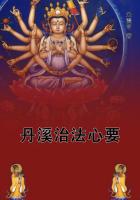What M. Proudhon calls use value is called estimation value by other economists, and with just as much right. We shall quote only Storch ( Cours d'economie politique , Paris 1823, pp.48 and 49).
According to him, needs are the things for which we feel the need; values are things to which we attribute value. Most things have value only because they satisfy needs engendered by estimation. The estimation of our needs may change; therefore the utility of things, which expresses only the relation of these things to our needs, may also change.
Natural needs themselves are continually changing. Indeed, what could be more varied than the objects which form the staple food of different peoples!
The conflict does not take place between utility and estimation;it takes place between the marketable value demanded by the supplier and the marketable value supplied by the demander. The exchange value of the product is each time the resultant of these contradictory appreciations.
In final analysis, supply and demand bring together production and consumption, but production and consumption based on individual exchanges.
The product supplied is not useful in itself. It is the consumer who determines its utility. And even when its quality of being useful is admitted, it does not exclusively represent utility. In the course of production, it has been exchanged for all the costs of production, such as raw materials, wages of workers, etc., all of which are marketable values. The product, therefore, represents, in the eyes of the producer, a sum total of marketable values. What he supplies is not only a useful object, but also and above all a marketable value.
As to demand, it will only be effective on condition that it has means of exchange at its disposal. These means are themselves products, marketable value.
In supply and demand, then, we find on the one hand a product which has cost marketable values, and the need to sell; on the other, means which have cost marketable values, and the desire to buy.
M. Proudhon opposes the free buyer to the free producer. To the one and to the other he attributes purely metaphysical qualities. It is this that makes him say:
"It is proved that it is man's free will that gives rise to the opposition between use value and exchange value."[I 41]
The producer, the moment he produces in a society founded on the division of labor and on exchange (and that is M. Proudhon's hypothesis), is forced to sell. M. Proudhon makes the producer master of the means of production;but he will agree with us that his means of production do not depend on free will. Moreover, many of these means of production are products which he gets from the outside, and in modern production he is not even free to produce the amount he wants. The actual degree of development of the productive forces compels him to produce on such or such a scale.
The consumer is no freer than the producer. His judgment depends on his means and his needs. Both of these are determined by his social position, which itself depends on the whole social organization. True, the worker who buys potatoes and the kept woman who buys lace both follow their respective judgments. But the difference in their judgements is explained by the difference in the positions which they occupy in the world, and which themselves are the product of social organization.
Is the entire system of needs on estimation or on the whole organization of production? Most often, needs arise directly from production or from a state of affairs based on production. Thus, to choose another example, does not the need for lawyers suppose a given civil law which is but the expression of a certain development of property, that is to say, of production?
It is not enough for M. Proudhon to have eliminated the elements just mentioned from the relation of supply and demand. He carries abstraction to the furthest limits when he fuses all producers into one single producer, all consumers into one single consumer, and sets up a struggle between these two chimerical personages. But in the real world, things happen otherwise.
The competition among the suppliers and the competition among the demanders form a necessary part of the struggle between buyers and sellers, of which marketable value is the result.
After having eliminated competition and the cost of production, M. Proudhon can at his ease reduce the formula of supply and demand to an absurdity.
"Supply and demand," he says, "are merely two ceremonial forms that serve to bring use value and exchange value face to face, and to lead to their reconciliation. They are the two electric poles which, when connected, must produce the phenomenon of affinity called exchange."(Volume I, pp.49 and 50)
One might as well say that exchange is merely a "ceremonial form" for introducing the consumer to the object of consumption. One might as well say that all economic relations are "ceremonial forms" serving immediate consumption as go-betweens. Supply and demand are neither more nor less relations of a given production than are individual exchanges.
What, then, does all M. Proudhon's dialectic consist in? In the substitition for use value and exchange value, for supply and demand, of abstract and contradictory notions like scarcity and abundance, utility and estimation, one producer and one consumer, both of them knights of free will.
And what was he aiming at?
At arranging for himself a means of introducing later on one of the elements he had set aside, the cost of production, as the synthesis of use value and exchange value. And it is thus that in his eyes the cost of production constitutes synthetic value or constituted value.















